Archive
2020
KubaParis
HEALING GAMES
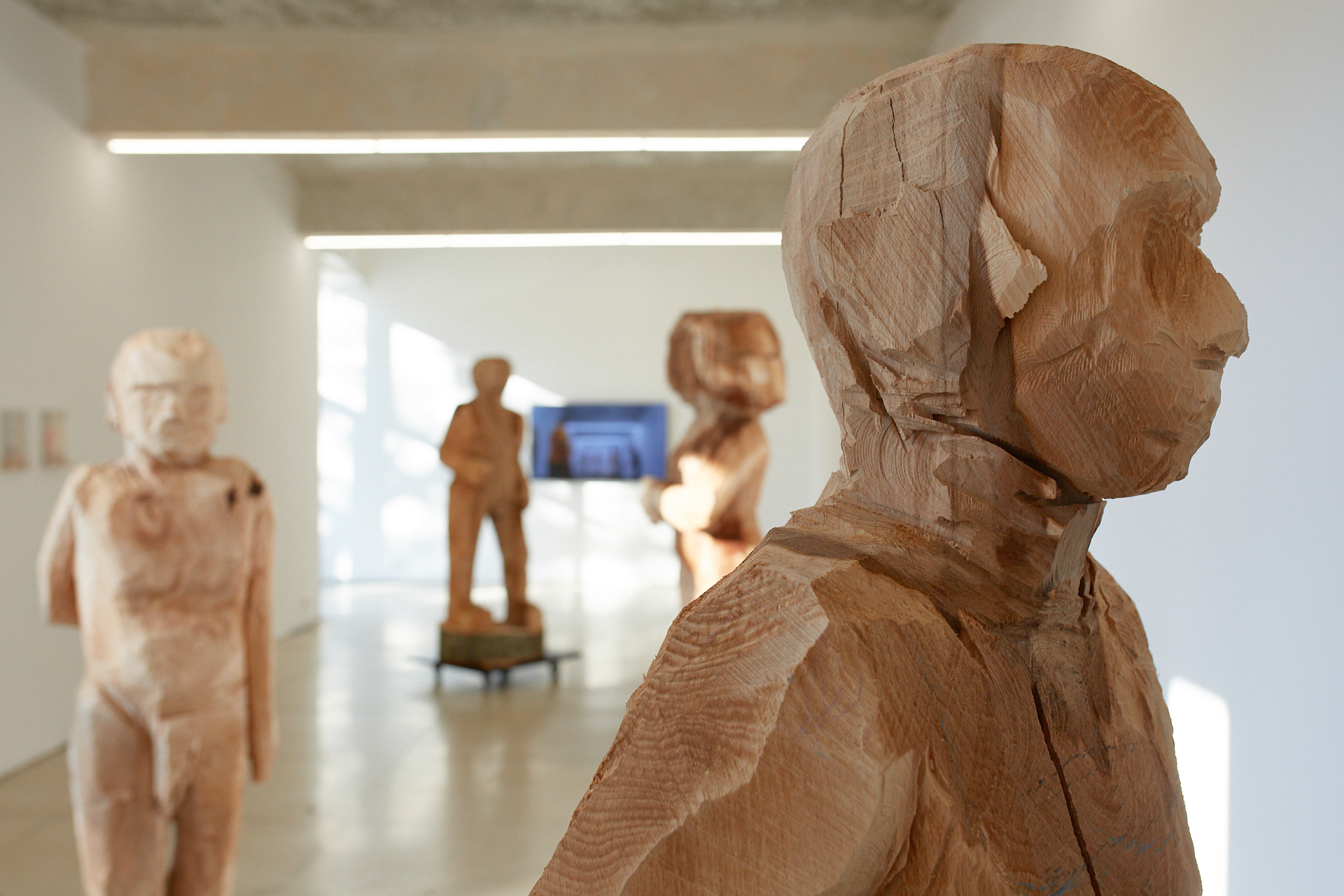
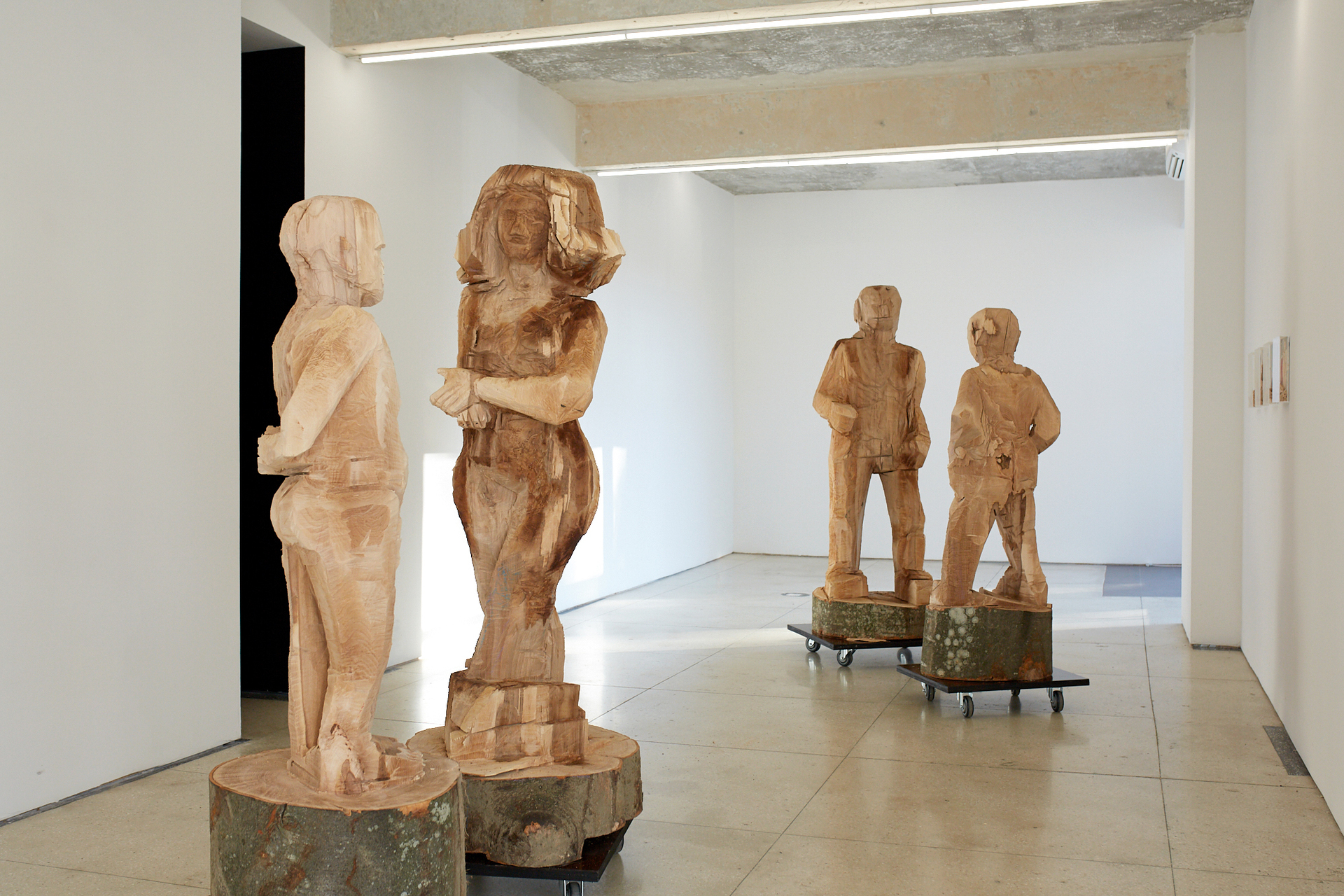
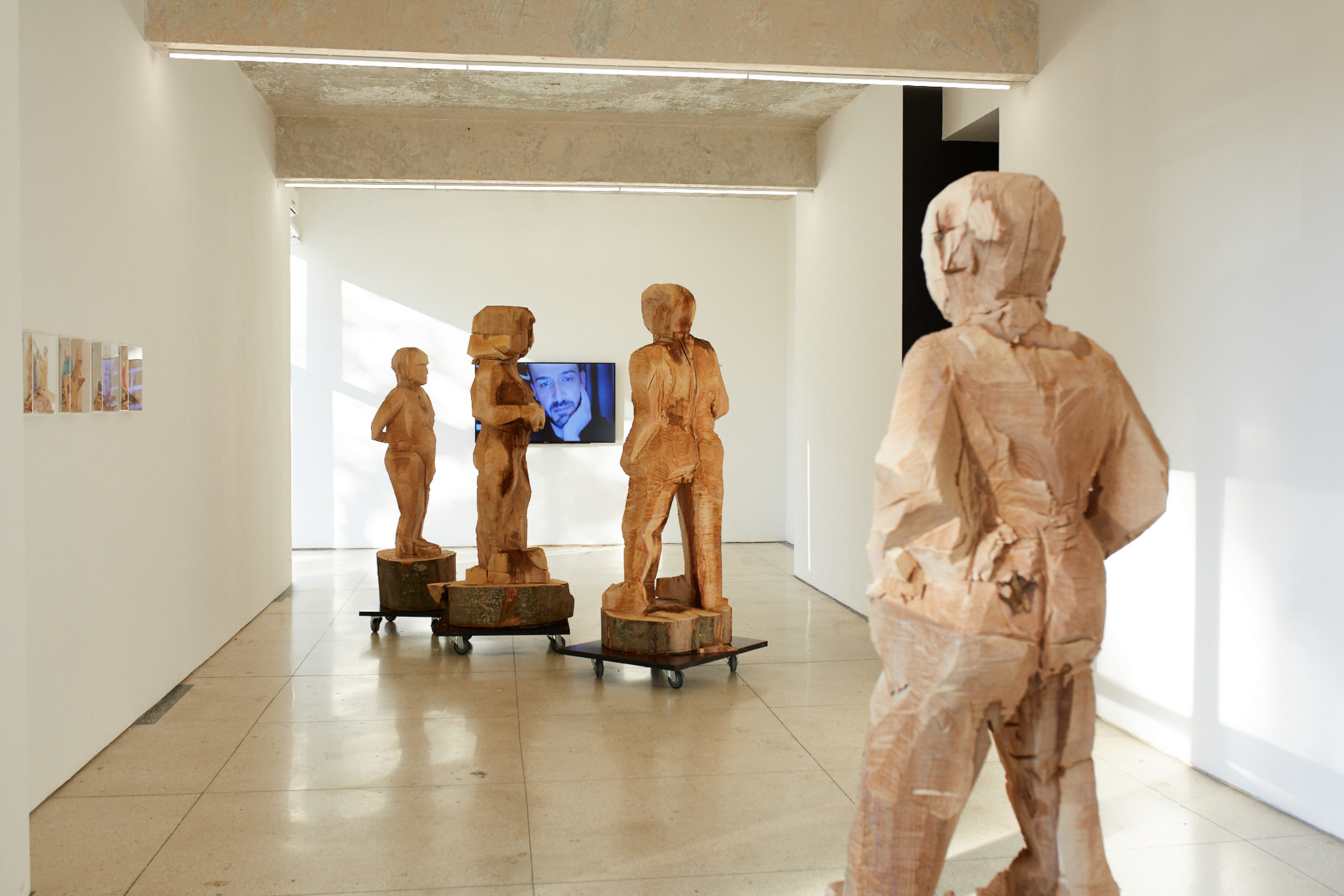
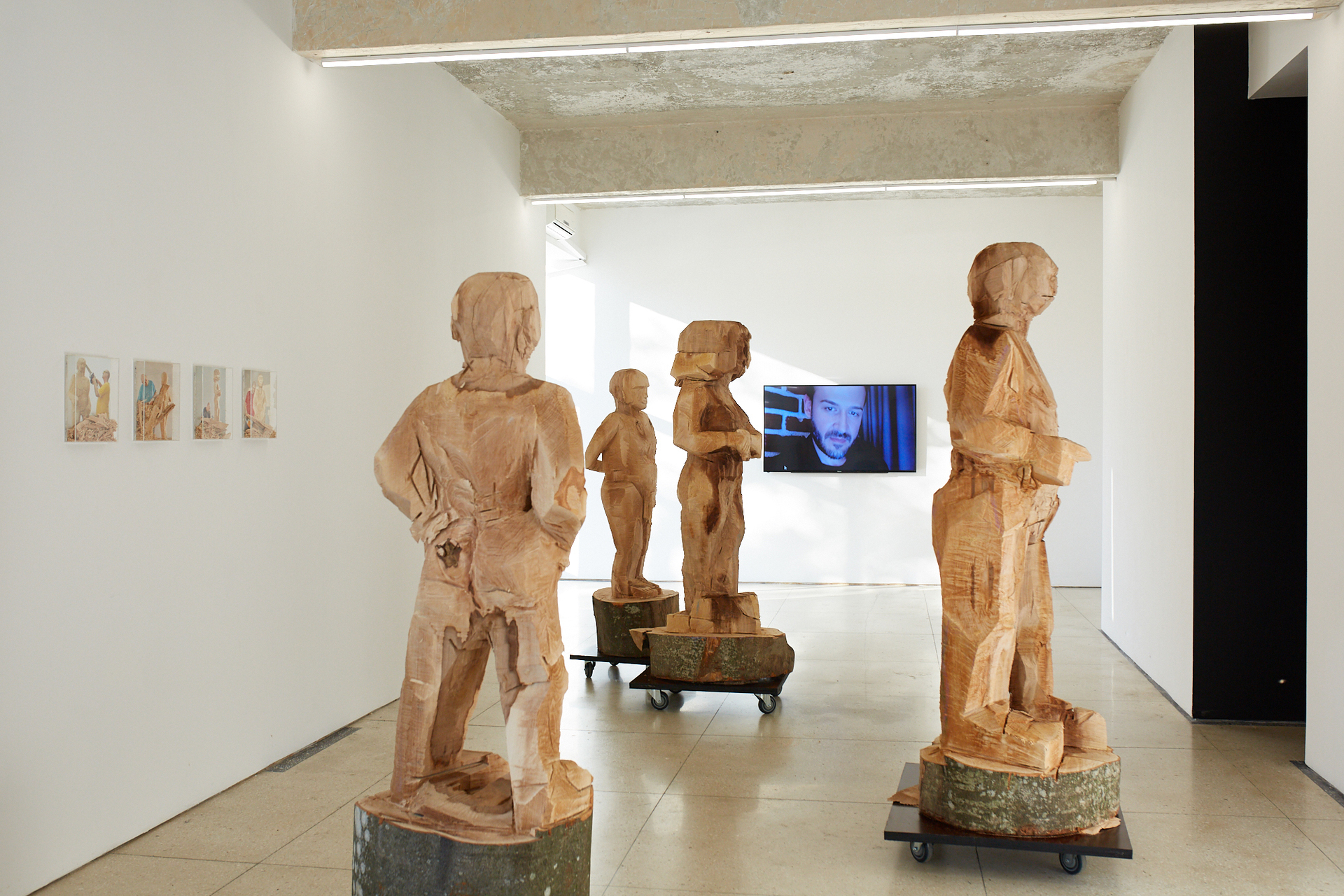
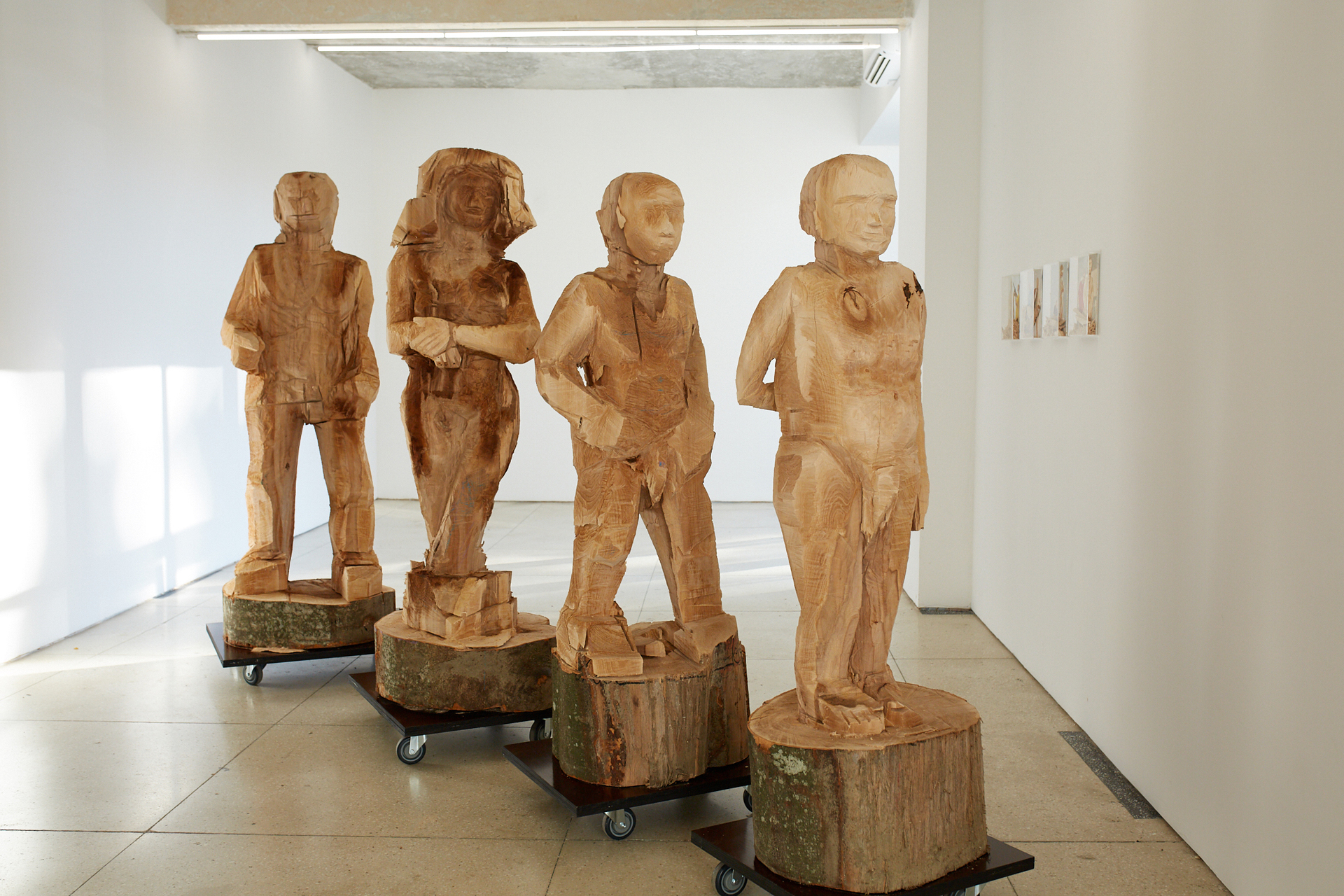
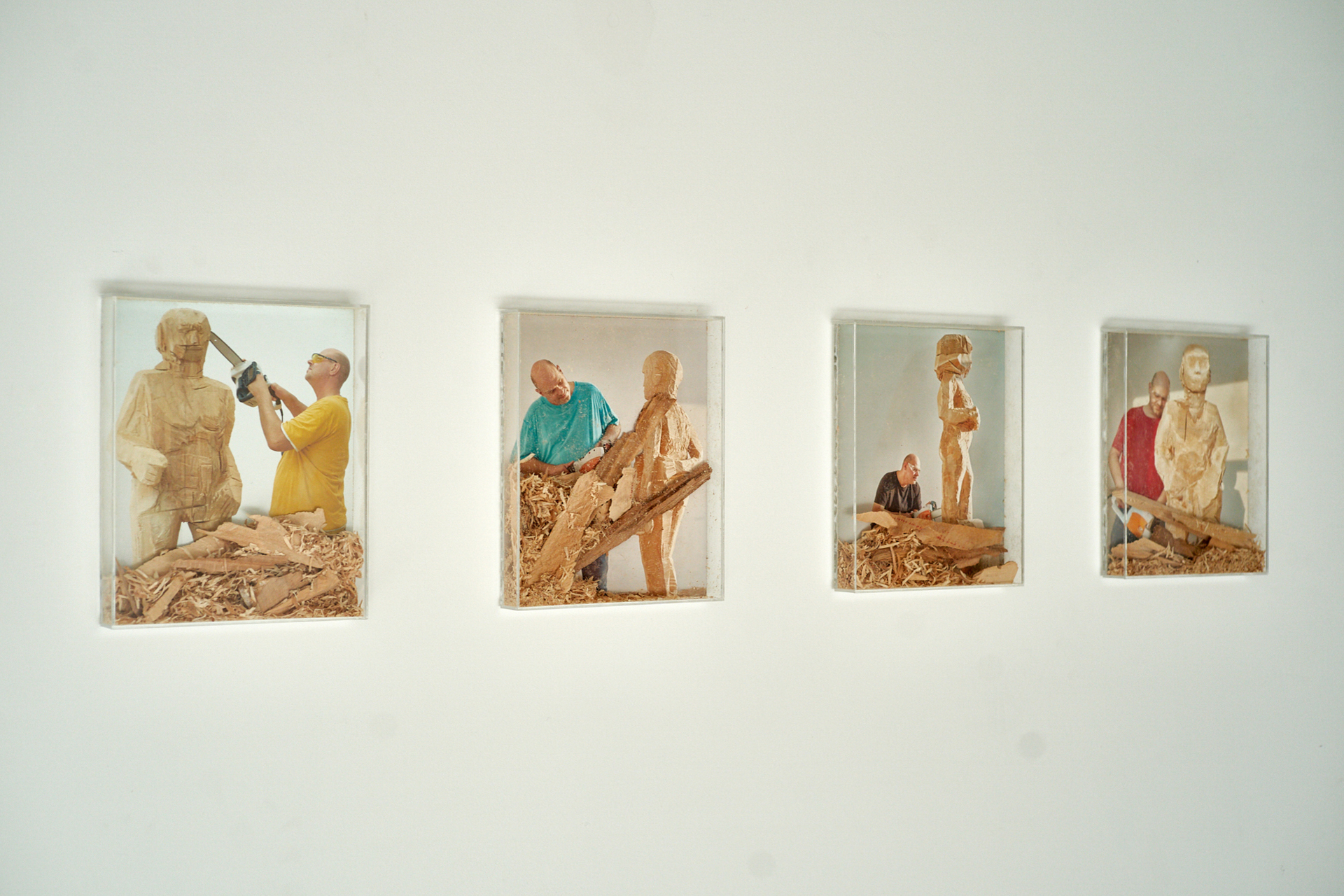
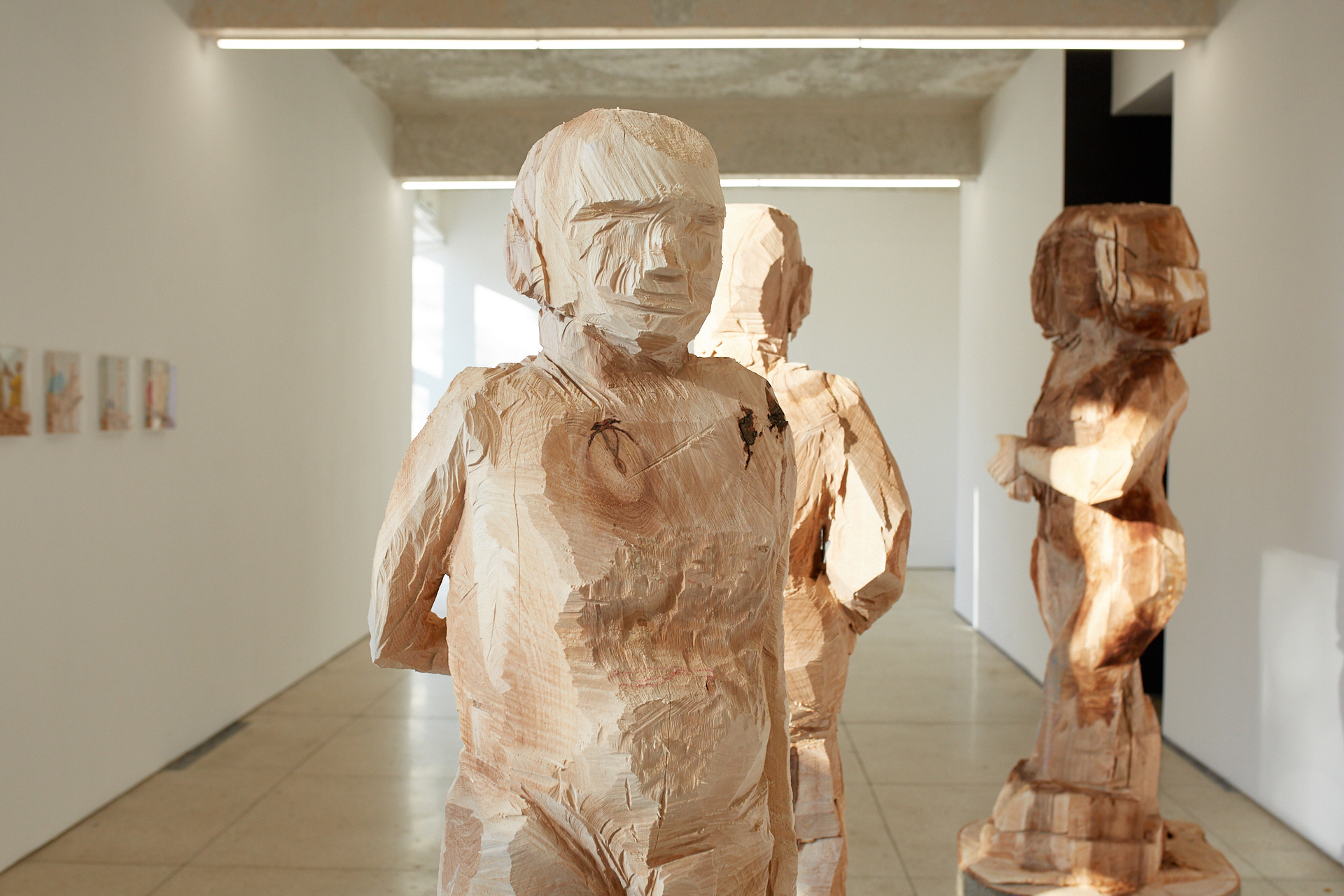
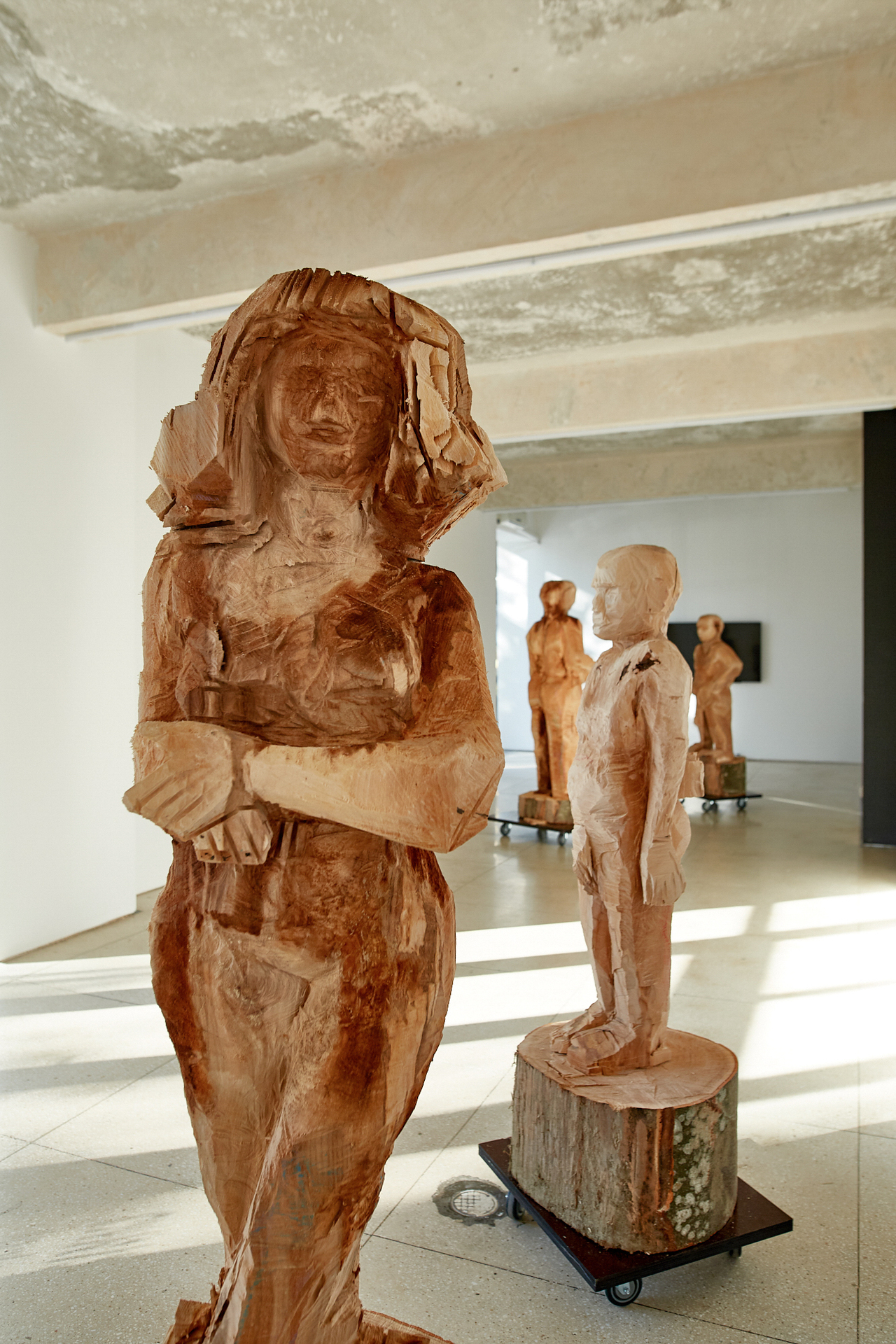
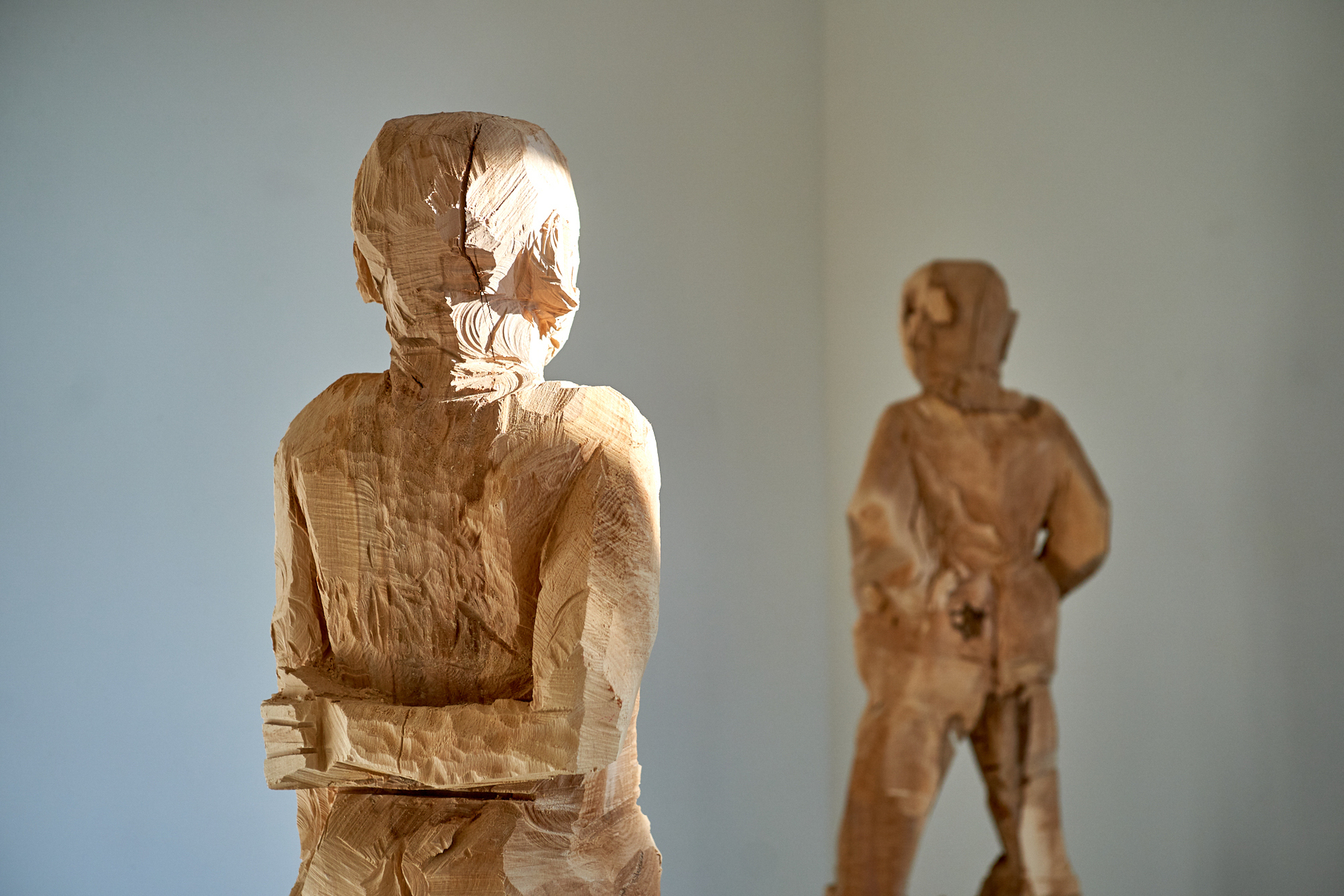
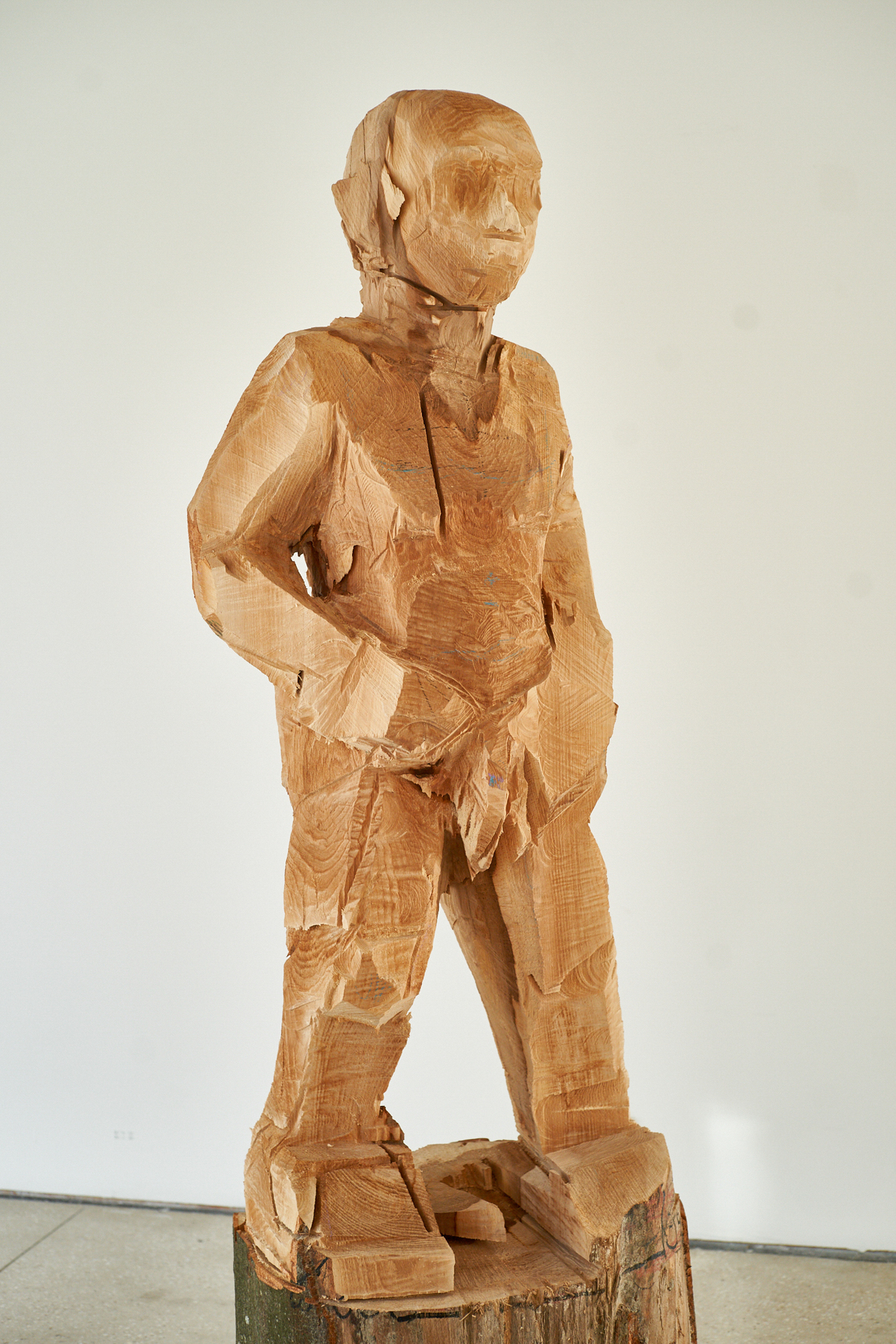
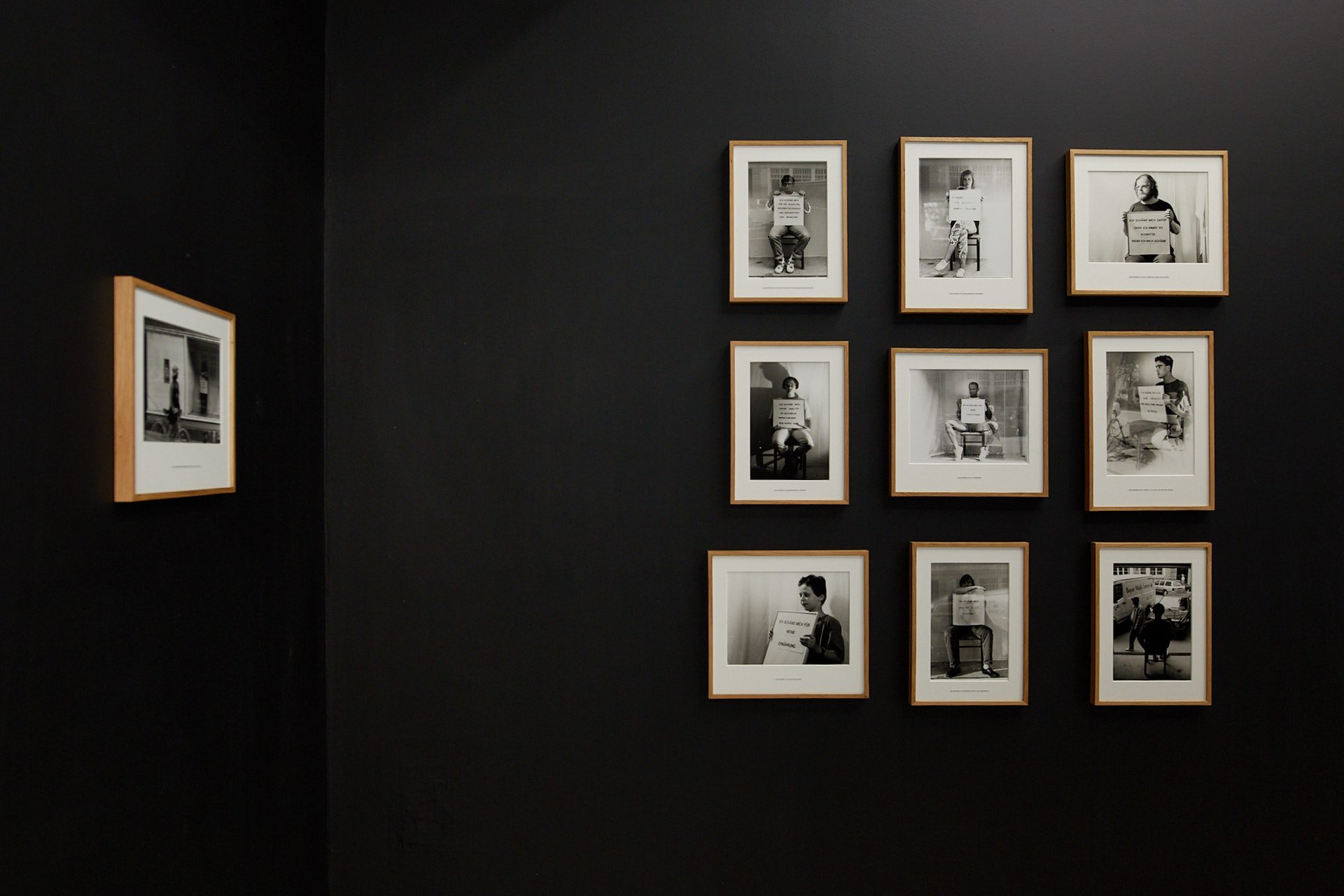
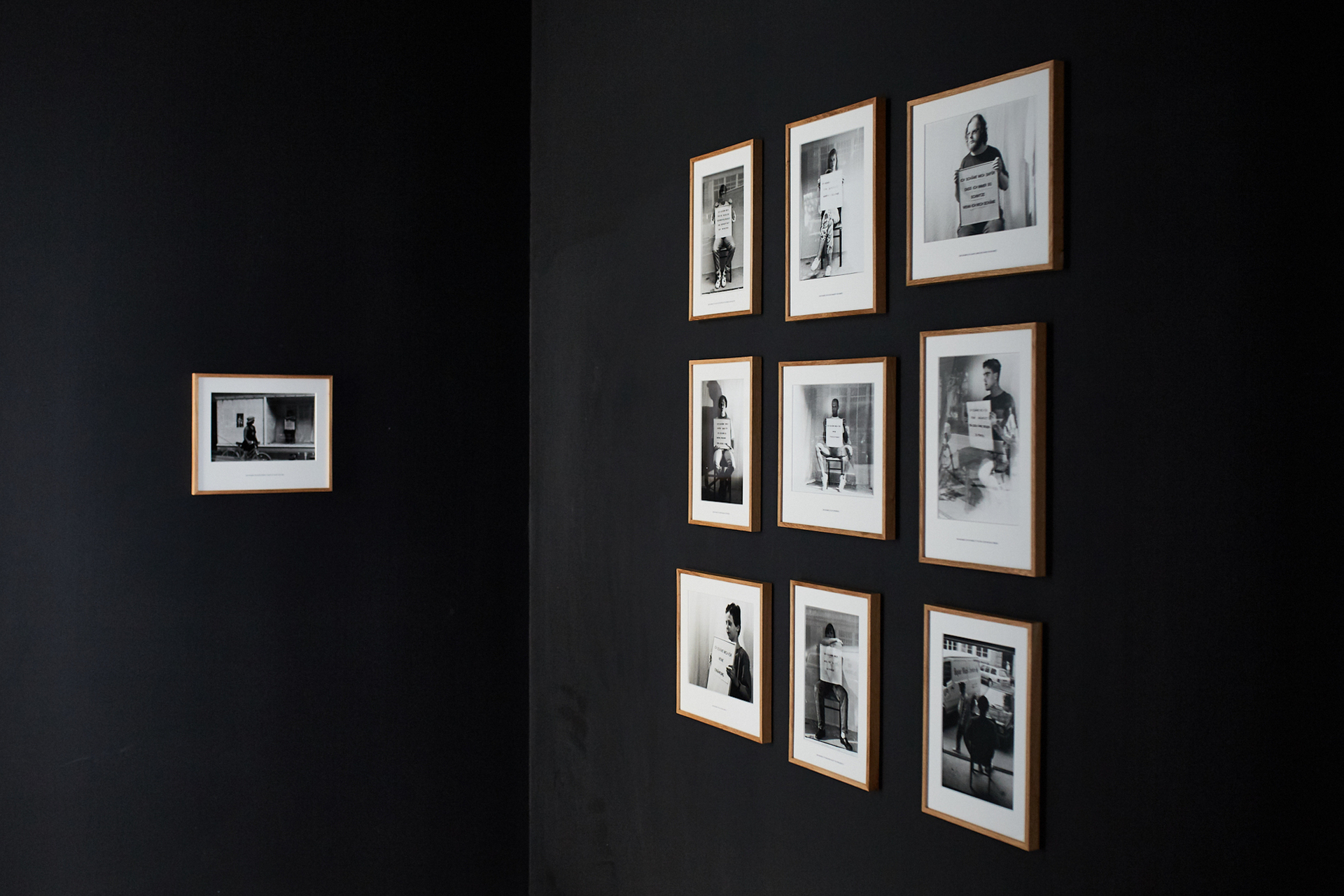
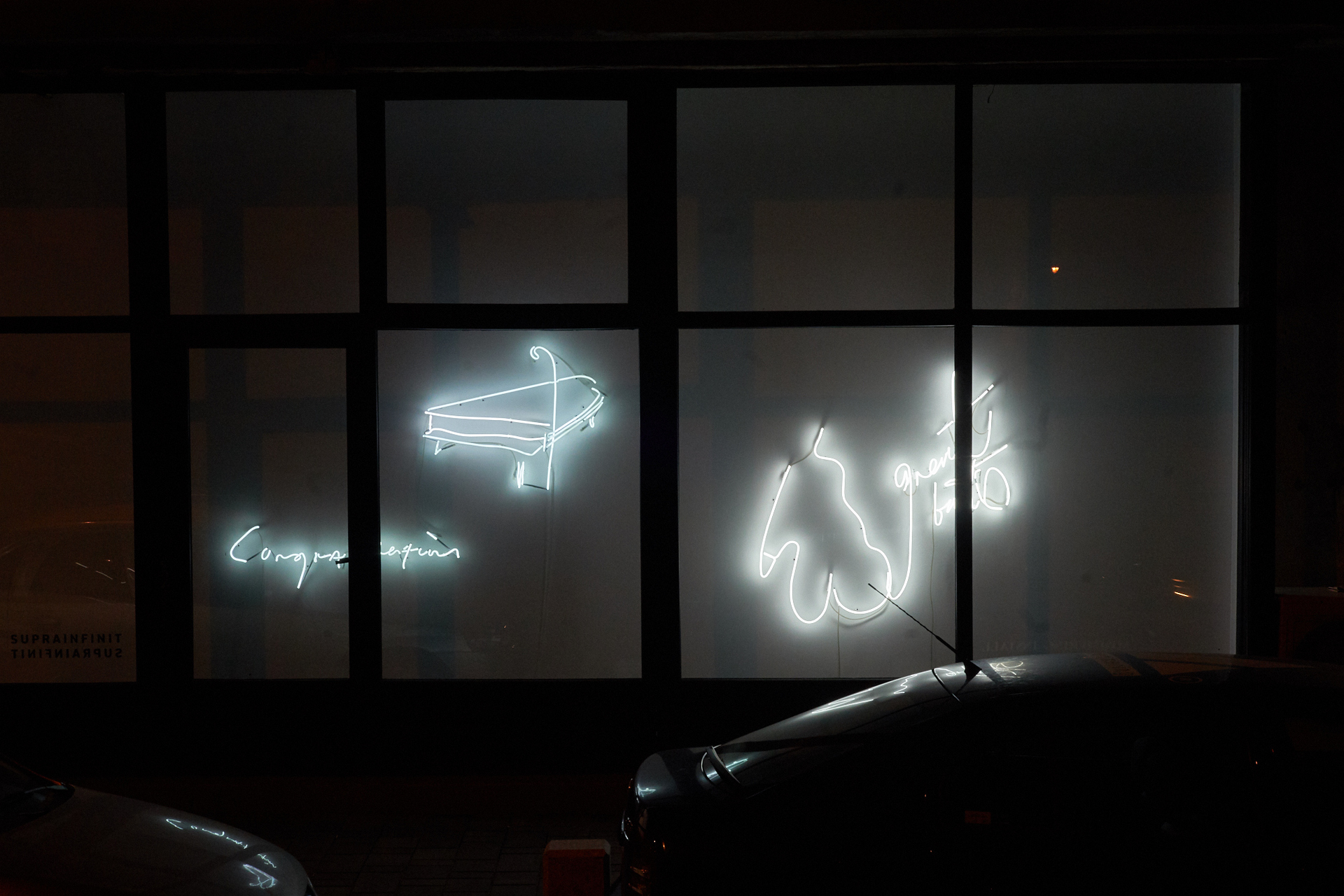
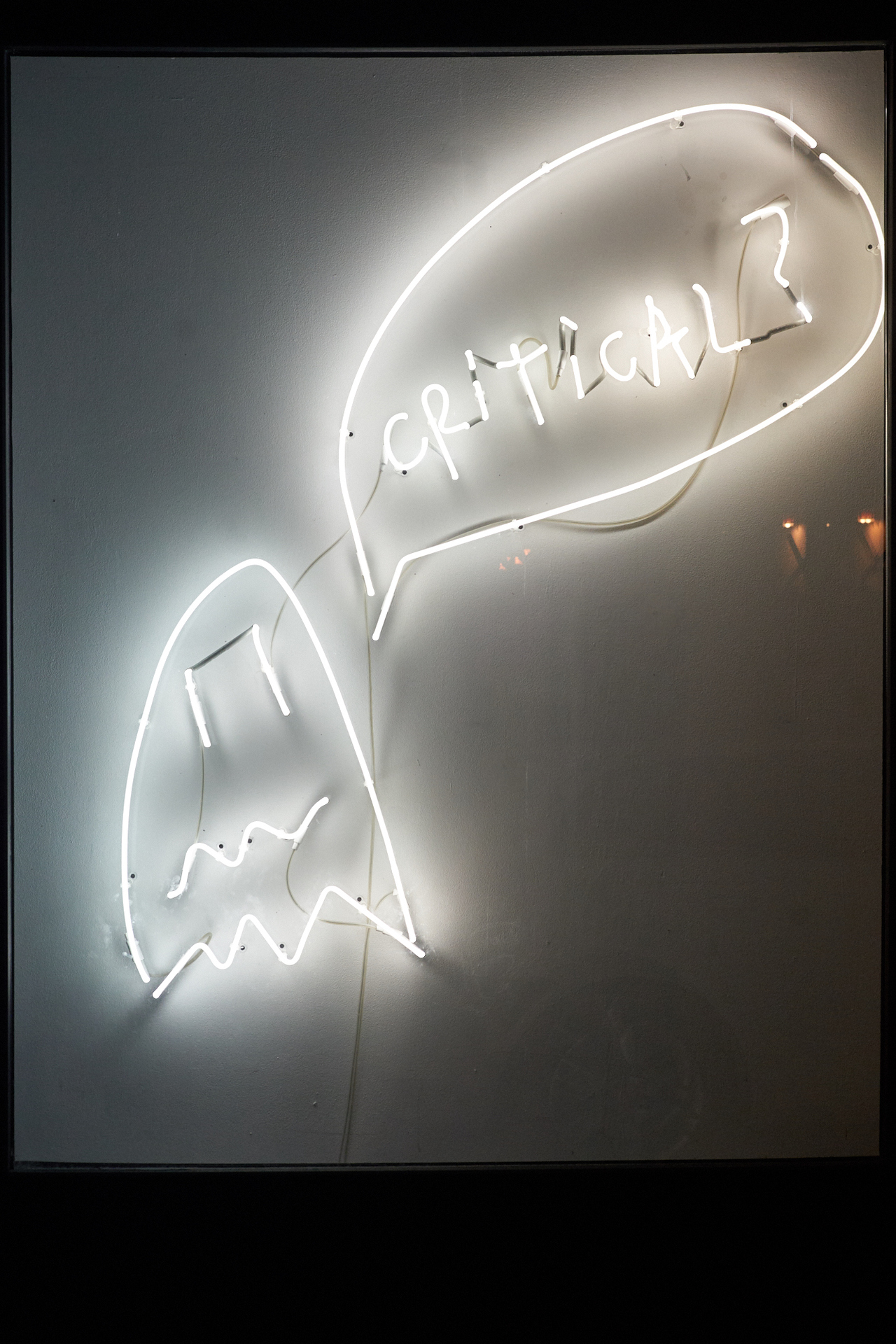
Location
Bucharest, RomaniaDate
29.10 –18.11.2020Curator
Infinite Conversation Curatorial Unit (Dan Angelescu, Irina Radu, Cristina Vasilescu)Photography
Adi BulboacaText
Talk therapy informs and infuses more and more discourses outside therapists’ offices. From personal development coaching to social media and entertainment or political analysis, therapeutic speech enters the scene as a linguistic agent and decodes choices, habits or individual biases, online and offline. It makes unconscious choices familiar and explainable through patterns of talk, action and thought. It dismantles automatisms by highlighting the shadows in which shame, joy, guilt or desire hide for every individual.
Healing Games is the solo exhibition of artist Christian Jankowski, whose practice touches on dialogue at both a personal and a collective level, through a newly commissioned work, Family Constellation, and through previous works that echo concerns from related fields.
For Family Constellation, Jankowski asked Romanian Clinical Psychologist Alexandru Bătinaș to lead three online therapy sessions in the gallery space throughout the artistic working process. The artist invited his younger brother Jochen Jankowski to Bucharest for two weeks, both taking part in the sessions to discuss their relationship, family dynamics and the role of art as a possible healing game. Creating a new image of their “Ursprungsfamilie” (family of origin, a German term used in psychotherapy to describe genetic predispositions and alikeness amongst members of a family), Jochen works on and orchestrates the shaping process of four wooden sculptures in the exhibition space, representing each member of the family: the mother, the father and the two brothers. The entire sculpting development is informed by the discussions with the therapist and by the brothers’ old and new perceptions of their family. The siblings’ collaboration in chainsaw carving resurfaces movements of consciousness, giving access to memories that are subtly unearthed throughout the sculptures’ making. Fixed on four-wheel platforms, they allow the artist to move the heavy characters according to the ever-changing family dynamics.
Unlike most of the artist’s previous works, where the investigation matters derive from the local context and are directed outwards, this project points to his kinship in uncontrollable, affective ways. Family Constellation accesses the unfamiliar through the familiar, exploring family relationships as a method of voyage and hybrid encounter.
The video and the series of plexiglass objects document Jankowski’s therapeutic intervention and complement the sculpture ensemble in the personal and collective psyche, engaging with specialists of fields situated outside the art realm. The script is never the product of one author, but rather the result of meetings and dialogues between the numerous voices involved.
Family Constellation is an elaborate installation that combines various media produced in Bucharest in the autumn of 2020, and alongside the other works explores the potential of dialogue and (un)familiarity as a catalyst in (self)healing processes.
For Shame Box (1992), Christian invited a number of passers-by to write down their greatest shame on a sign and sit behind the signage in the storefront window of his Hamburg studio, presenting it to the outside world. The display of intimate emotions becomes a public installation, a therapeutic gesture for participants and viewers alike. Visitors (2010—2019) is a series of neon works that reproduce messages left by the public in museums’ visitor books. Jankowski selects the messages that lead to the destabilisation of the certainties of language, captures the mute dialogue between the producer and the viewer and redirects an impression, turning a reaction into an image that is open for interpretation.
________________________________________
Christian Jankowski (b. 1968, Göttingen, Germany) studied at the University of Fine Arts, Hamburg. In his conceptual works, he focuses on performance, film, video and photography, but also employs a variety of media, including painting, sculpture and drawing. Jankowski initiates collaborations between contemporary visual art and other professional worlds such as those of religion, business, politics and entertainment. Protagonists from many fields inscribe themselves in Jankowski’s art. Jankowski’s art is carried out in close exchange with mass media formats and their production mechanisms. The focus lies in the collective invention and the questioning of its power: testing the image.
Jankowski has been featured in numerous group exhibitions such as the Bangkok Art Biennale 2020 and solo exhibitions including Sender and Receiver (Fluentum, 2020), Weather Flag (josegarcia, mx, 2020); Floating World (@KCUA, 2018), 2017 (Petzel Gallery, 2018). In 2016, he curated the 11th edition of Manifesta, becoming the first artist to assume this role. Christian Jankowski lives and works in Berlin, Germany.
________________________________________
Healing Games is part of Quote—Unquote, a long-term interdisciplinary and collaborative research platform which explores the mechanisms, uses and effects of (public) speech and language in contemporary society, through artistic practice and its intersections with other fields of activity.
Quote—Unquote is conceived and articulated by Infinite Conversation Association / curatorial unit
(Dan Angelescu, Irina Radu, Cristina Vasilescu). Visual identity by Gabriel Barbu
Website: www.quoteunquoteplatform.com
Facebook: Quote—Unquote
Instagram: @quote___unquote___
Artist Project: Christian Jankowski is a cultural project co-funded by the Administration of the National Cultural Fund. In collaboration with Goethe-Institut Bucharest
Partner: SUPRAINFINIT Gallery
Media partners: IQads, ISCOADA
Special thanks to: Alexandru Bătinaș, Robert Blaj, Adi Bulboacă, Petre Fall, Sorin Florea, Georgiana Harabagiu, Ștefan Hoescu, Jochen Jankowski, Erton Muco, Tudor Popescu, Diana Vasilescu, Robert Vîiu, Kristin Wenzel, Marian and Victoria Zidaru, Mântuleasa neighbours.
The project does not necessarily represent the position of the Administration of the National Cultural Fund. AFCN is not responsible for the content of the project, nor for the manner in which the results of the project might be used. These are entirely the responsibility of the beneficiary of the grant.
Infinite Conversation (Dan Angelescu, Irina Radu, Cristina Vasilescu